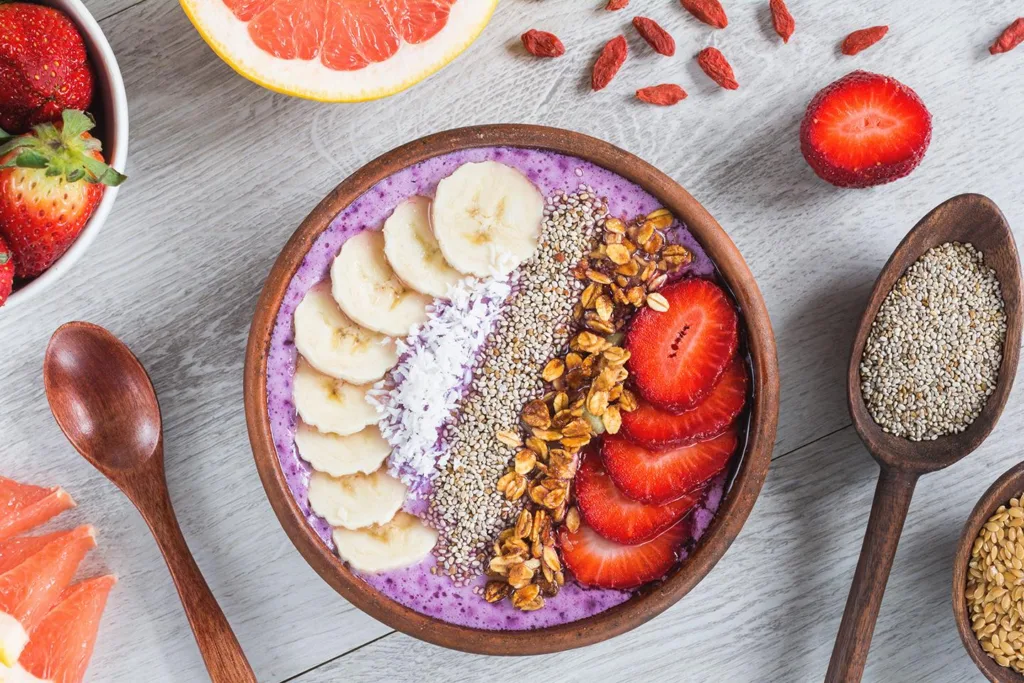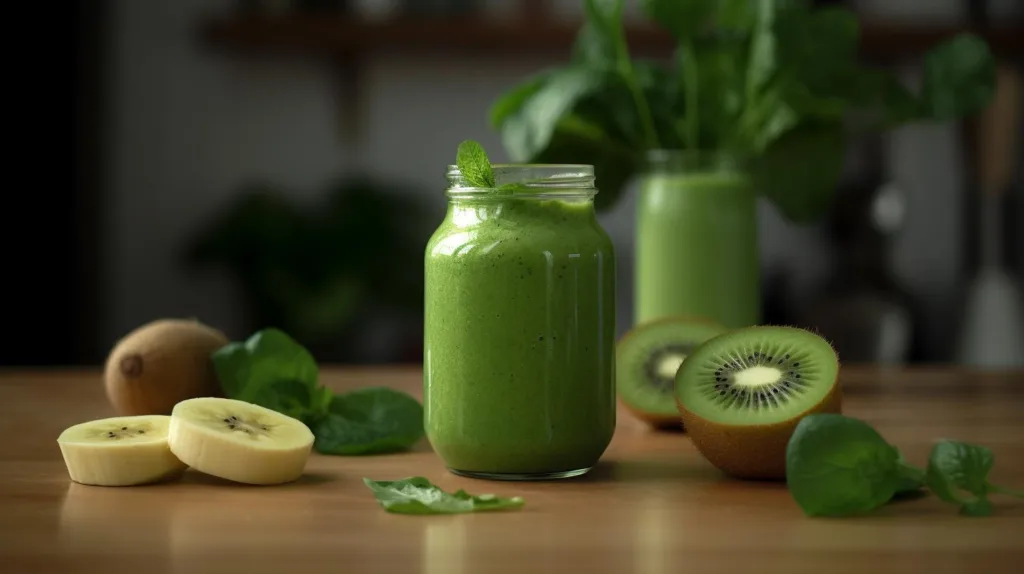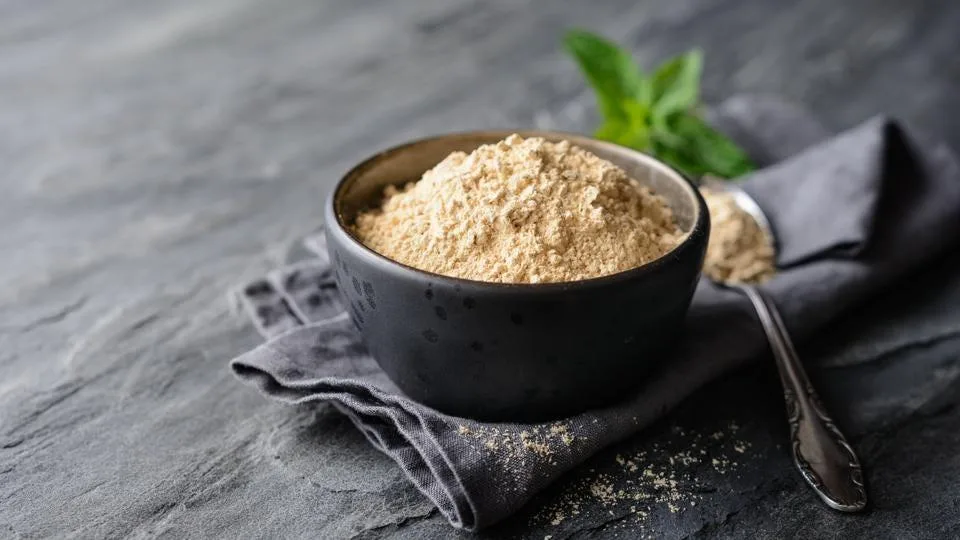Table of Contents
Bloating is something that can happen to anyone. You may have experienced it from time to time, especially after a large meal. It often appears as a gassy, tight, and uncomfortable feeling around the belly. Usually, the sensation goes away soon enough. However, for some, it can be a more daily occurrence and may sometimes last longer than it should. If you are prone to episodes of bloating, read more about how to avoid it, what not to eat, and when to be concerned.
What does bloating mean?
Bloating is an uncomfortable feeling of tightness, swelling, gassiness, or fullness in your abdomen or tummy. The sensation can range from mild to intense discomfort (1).
Sometimes people confuse bloating with abdominal distension, which is when the abdomen swells and increases in size (2). While people may feel their belly has increased in size, this is usually not the case.
Causes of bloating and distention are usually different, although both symptoms can appear at the same time (2). For this reason, it’s important to distinguish between the two for proper treatment.
How common is bloating?
Surveys tend to suggest that between 15% to 20% (3), and possibly as high as 30% (4), of the general population experience bloating. Also, the majority of these report their symptoms as moderate to severe (3).
In the same surveys, women experience bloating twice as often as men. Furthermore, severe bloating tends to be more common among young females who also experience loose stool for no reason (3).
Surprisingly, people over 60 don’t suffer as frequently from bloating as compared to people younger than 60.
Bloating occurs in nearly all patients with irritable bowel syndrome (IBS) (5). In this case, it tends to occur more with symptoms of constipation than diarrhea. Also, half of the IBS patients with bloating also suffer from abdominal distension (2).
Common causes of bloating
Excess gas in the GI tract is often thought to be a cause of bloating (4). However, bloating is likely caused by a mix of factors that vary from person to person (1).
Here are a few common things that could make you feel bloated:
The wrong FODMAPS
FODMAPs are rapidly fermentable, short-chain carbohydrates not easily processed by the small intestines and colon. Examples include lactose found in dairy products or high fructose foods. Once these FODMAPS enter the small intestine and colon, healthy gut bacteria cause the absorption of water and fermentation. The resulting gas can often produce bloating (6).
High FODMAP foods include cereals, certain fruits and vegetables, types of dairy, cured meats, legumes, high fructose, and artificial sweeteners (7). For individuals with IBS, there is research suggesting a diet low in FODMAPs is beneficial in reducing abdominal symptoms (8).
Eating too much
Eating large or frequent meals, and eating late in the day, are recognized causes of bloating (9). The stomach can have a hard time breaking down large amounts of food at once. Undigested food produces gas which can lead to bloating.
Eating too fast
Eating too fast is another cause of excess gas. For one, your stomach and GI tract have to work harder, and there’s more chance food may not digest properly. Also, you tend to take more air into your stomach by gulping down food (9).
Stress and hormones
Emotional states are often not the first culprits to take the blame for bloating. However, stress hormones can cause hypersensitivity in the gut, especially for those with IBS (9). Hypersensitivity can also badly modify the gut microbiota’s homeostasis (10).
Stress affects people differently and can lead to constipation, slow digestion, abdominal pain, or bloating.
Reasons for bloating: Underlying health issues
Sometimes, bloating is related to underlying medical conditions or periodic problems and issues. Here are the things you need to know about:
Constipation: Regular constipation can make you prone to bloating. Also, it causes severe bloating in 80% of cases (11).
Intestinal bacteria: Small intestinal bacterial overgrowth (SIBO) can lead to chronic bloating. It can overwhelm other bacteria and break the digestive balance (1).
Weight gain: Studies show that increasing body mass index (BMI) is directly linked to upper GI issues, bloating, and diarrhea (12).
Irritable bowel syndrome (IBS): Bloating is one of the most common and bothersome complaints in many people with IBS (1).
Food intolerance: If you have a tough time digesting certain foods, it can make you feel bloated. Common food intolerances are lactose, gluten, and fructose (9).
Infection: Stomach infections can cause bloating. Common infections include bacteria such as Helicobacter pylori and viruses (9).
Gynecological disorders: Bloating can sometimes be an early sign of reproductive problems. In a study, 57% of women with ovarian cancer experience bloating (13).
What relieves bloating fast: Simple things that you can do
As you may realize, there are a number of factors that either cause or contribute to bloating. Fortunately, a simple change in diet and lifestyle can have a profound effect.
Drink more water
Drinking water helps fill your stomach without gaining calories. This can help prevent overeating and weight gain, leading to obesity which is often associated with bloating (12, 14).
Furthermore, drinking plenty of water helps bloating by flushing out excess sodium and other toxins from your body.
Reduce problematic foods
Unfortunately, certain healthy fruits and vegetables with a high FODMAP profile can cause bloating in persons with IBS (5, 6). You can try reducing these foods from your diet after discussing them with your doctor. Certain cooked, pickled, or canned foods have lower FODMAP levels and may lessen bloating (15).
It’s also best to avoid processed, spicy, salty, sugary, or fatty foods and foods you have a natural intolerance for. Fizzy drinks, alcohol, and coffee can also be problematic (1, 5, 9).
Precooked foods often contain numerous additives or are high in fat and salt content (16). If you don’t know what ingredients to look for, it’s better to cook at home as often as possible.
Peppermint tea for bloating
Peppermint (Mentha piperita) has been shown to have a relaxing effect on the muscles in the digestive tract, which can help to relieve bloating (17, 18).
Peppermint is easy to consume in a variety of ways. Popular options include peppermint tea (found in most grocery stores) or peppermint oil with a few drops added to a glass of water (17).
For an added effect, peppermint oil can also be applied topically to the abdomen area (18).
Exercise regularly
Research supports that light exercise, such as walking after meals, would help in digestion and eliminating gas (19, 20). Also, regular movement can improve bowel movements, decrease water retention, and help combat weight gain. All of these things can help reduce bloating (20).
Do yoga and meditation
Yoga offers obvious physical benefits from either light or strenuous workouts. More research is now being done into the added benefits of yoga and the wisdom of its ancient traditions on reducing stress and improving physical well-being, including abdominal complaints (21).
And it’s not just about physical movement. Experiments with meditation, relaxation, and the mind-body connection have also shown positive impacts on bloating and IBS symptoms (22).
When to seek medical advice
It’s rare that bloating will indicate a severe condition. However, it’s best to consult your healthcare provider if you experience more serious symptoms (1, 9, 11, 23):
- Longer and more pronounced bloating
- Abdominal pain or discomfort
- Fever or heartburn
- Feeling a lump in your abdomen
- Appetite loss, nausea, and vomiting
- Unexplained and noticeable weight loss
- Non-menstrual vaginal bleeding
- Bloody stools, diarrhea, or constipation
- Chest discomfort
Summary
There are various causes of abdominal bloating, including eating habits and certain health issues. Fortunately, there are simple yet effective things you can do, such as drinking more water, avoiding certain foods, eating less, and eating slower. It’s also important to pay attention to stress and emotional triggers. Bloating usually isn’t a serious problem, but it’s important to note symptoms that could indicate a more serious issue.

















Comments
0